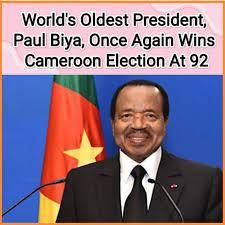Silencing Voices: The Nigerian Government’s Struggle Against Civic Freedom
by Beady Nnanna · Published · Updated
With the assumption of a democratical system of government being practised in Nigeria, yet, what every Nigerian can see is an autocratic system in the way voices are been silenced is becoming too worrisome.
Nigeria In recent times has faced mounting criticism from human rights organizations and citizens alike for the government’s increasing efforts to suppress dissent and silence voices demanding accountability and transparency. Amid a backdrop of economic hardship, rising insecurity, and political instability, the measures taken by the Nigerian government raise serious concerns about the state of democracy in the country.
Reports indicate a troubling trend of intimidation, censorship, and violence against journalists, activists, freedom fighters and everyday citizens who speak out against the government’s actions. In a society where the desire for genuine discourse on pressing issues is strong, many Nigerians now find their voices stifled under the weight of oppressive tactics, and politicians and heavy wight in the land.
One prominent case is the arrest of the human rights lawyer-activist, and cases like the arrest of journalists covering protests against police brutality and corruption, highlight a pattern of restricting access to information.
The government’s recent efforts to pass laws aimed at regulating social media and curbing “fake news” further exemplify attempts to control narratives and silence critical opinions.
Critics argue that these laws are a thinly veiled attempt to undermine freedom of expression in a country where social media has become a vital platform for civic engagement.
Activists have also reported increased surveillance and harassment, creating a climate of fear that discourages citizens from exercising their rights. With the government branding dissenting voices as terrorists and threats to national security, many are left to navigate a dangerous landscape where speaking out can lead to dire consequences. where the government pay online agents to counter truths and change the narrative for the government’s will and views.
“The government’s reaction to criticism reveals an unwillingness to genuinely engage with the issues plaguing our society,” says Amina Bello, a human rights advocate. Amina is the First Lady of Niger State, an obstetrician, gynaecologist and human rights activist.
“When people are afraid to speak up, the truth becomes a casualty, and our democracy suffers.”
As tensions rise, the future of civic engagement in Nigeria hangs in the balance. Citizens are increasingly calling for international support and intervention to safeguard their rights, urging the global community to stand in opposition to oppressive measures that threaten freedom and democracy.
With a growing number of voices rising against these systemic efforts to silence dissent, the question remains: How long before the government recognizes that the truth can no longer be buried beneath oppression and fear?
The resilience of the Nigerian people will be crucial in the fight for a transparent and accountable government, one that listens to its citizens rather than quelling their voices.
the recent arrest of silencing the voice is the arrest of Dele Farotim after he published his book “NIGERIA AND ITS CRIMINAL JUSTICE SYSTEM”https://a.co/d/9GBuRG4



